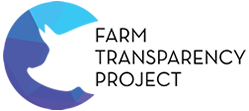News & Media > Media Releases and Statements > Statement in Response to New Victorian Laws Targeting Animal Activists
Statement in Response to New Victorian Laws Targeting Animal Activists
The Victorian Government has today announced the introduction of new legislation, the Livestock Management Amendment (Animal Activism) Bill 2021, to address what it calls "the serious impacts of trespass on Victorian farms and... the significant biosecurity risks that breaches from animal activists can pose".
These new laws impose heavy on-the-spot fines for people who covertly enter animal agriculture facilities to capture evidence of cruelty.
Once again, the issue of biosecurity is being used as an excuse to attempt to limit consumer awareness of the systemic cruelty occurring in farms and slaughterhouses across the country.
There has not been a single incident of a biosecurity hazard caused by activists, despite hundreds of investigations into farms, slaughterhouses and related facilities by activists over the last 40 years.
Those investigations have revealed countless atrocities in Victoria alone that would otherwise still be an industry secret:
- Live-baiting in the greyhound racing industry
- The maceration (blending) of live male chicks in the egg industry, because they won’t ever be able to lay eggs
- The slaughter of five-day-old male calves in the dairy industry because they won’t ever be able to produce milk, and female calves who are in excess of the farm’s needs
- The use of excruciating carbon dioxide gas chambers in all major pig slaughterhouses, previously touted by the industry as ‘humane’, and also for the killing of ‘unviable’ chicks in the broiler (meat) chicken industry, and ‘spent’ hens in the egg industry whose egg-laying has slowed
- Repeated failure of stunning methods at numerous slaughterhouses
- The routine killing of newborn male goats by the notorious 'Gippy Goat' farmer, as they are unable to produce milk and therefore useless to the goat dairy industry
- The routine 'disbudding' of newborn female goats at Meredith Dairy, using hot irons to painfully burn off the young goats' budding horns
- Dogs confined, exploited and abused in puppy mills
- Routine mutilation of young animals without anaesthetic
- ... and much more.
Furthermore, factory farms are not biosecure environments. They are in almost all cases, plagued by rats, mice, birds, cats, mosquitoes, cockroaches, and all manner of disease-carrying animals, who freely come and go. An outbreak of avian influenza at a NSW free range egg farm in 2013, believed to be contracted from wild ducks, spread to a nearby caged facility and led to the culling of over 400,000 farmed hens. It then also spread to a second caged egg farm.
With farms containing hundreds of thousands, sometimes millions, of animals, living in their own excrement, conditions are rife for the rapid spread of disease; it is impossible with only a handful of workers to provide individual vet care or to identify and then isolate/quarantine those affected. This is a problem inherent to intensive farming. To use it as an excuse to prevent these operations being filmed and seen by the Australian public is absurd.
The Andrews government is trying to have it both ways. On the one hand, they're working on a new Animal Welfare Act to replace the outdated Prevention of Cruelty to Animals Act (POCTA), and claiming that it will recognise the sentience of farmed animals. On the other hand, they're bowing to industry pressure to prevent consumers from seeing the reality of modern animal agricuture for themselves, and have stated they intend to carry over exemptions into the new Act that explicitly permit cruelty towards farmed and lab animals.
If these new anti-activist laws are anything to go by, this government has no real interest in the welfare of farmed animals, and the new Animal Welfare Act will be as much of a sham as POCTA. Their real interest is in stemming the tide of footage and photographs which have been, for many years, a source of great embarrassment and reputation damage for industries that engage in commercialised animal cruelty. This is despite a 2018 report commissioned by the federal Department of Agriculture finding that 95% of Australians view farmed animal welfare as a concern, and that the lack of transparency has led to an increasing level of public distrust in industry and government.
Were these industries transparent and honest about what happens inside these facilities, there’d be no need for anyone to take it upon themselves to capture evidence of it. Undoubtedly, these laws will not deter people who already know that they're risking their own lives and liberty in seeking to bring to the public's attention the systemic mistreatment of animals.
Chris Delforce
Executive Director, Farm Transparency Project

 View as a PDF
View as a PDF
